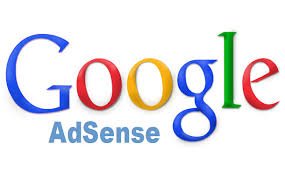When people think about monetizing their websites with Google AdSense, blogging is often the first step that comes to mind. But here’s the truth—you don’t always need to write endless blogs to get AdSense approval. There are other content strategies that can fulfill Google’s requirements while playing to your strengths or niche.
If you’re not a fan of writing blog posts or it’s simply not your area of expertise, here’s a well-structured guide to getting AdSense approval without touching a single blog article.
What Does Google AdSense Look for?
Before exploring alternatives, you need to understand the basic eligibility requirements for AdSense approval. Google primarily looks for three key factors:
- Unique and Useful Content: Your site needs to provide value to its audience, whether it’s through text, images, videos, or tools.
- Technically Compliant Website: AdSense policies require that your website loads quickly, has a professional layout, and is navigable.
- Policy-Adhering Content: Your website must follow all AdSense policies, meaning no copyrighted material, adult content, or sensitive categories.
If your website meets these general requirements, you’re ready to explore options beyond typical blogging.
6 Alternative Content Strategies for AdSense Approval
1. Create a Resource Website
Consider creating a platform that offers downloadable resources or tools for your niche audience. For instance:
- Study materials (e.g., PDFs or worksheets)
- Templates for business, design, or education
- Calculators, converters, or other online utilities
People constantly search for useful tools and resources online, which makes this type of website valuable. Pair these utilities with concise descriptions of the tools to meet Google’s “unique content” requirement.
2. Start a Video-Focused Site
No blogs? No problem. If you enjoy creating video content, you can build a video-focused website that showcases tutorials, product reviews, or informative clips. Embed YouTube videos and host them directly on your website for added engagement.
How this works:
- Publish regular videos on topics people care about.
- Supplement videos with short captions and tags for SEO purposes.
- Make sure your video landing pages are ad-friendly (align with AdSense policies).
3. Develop an Image-Based Platform
Another alternative is setting up a website centered around visual content such as photography, infographics, or artwork. Here are different ideas to pursue:
- A photography portfolio featuring your original work.
- A stock image library with free or premium downloads.
- A hub for infographics designed to make data relatable.
For AdSense, tag your images accurately and provide meaningful titles, descriptions, or metadata to create keyword-rich pages that align with user searches.
4. Build a Knowledge-Based Website
Create a site that offers answers, FAQs, or tutorials. For example:
- A niche-specific “How-To” website for cooking, tech fixes, or DIY crafts.
- An industry glossary or definitions site (think jargon explained).
- A community-based Q&A platform where users exchange knowledge.
Google values websites with actionable and educational material. This approach can add unique value to your site, making it a strong candidate for AdSense approval.
5. Use Curated News or Updates
Host a website that delivers curated news or real-time updates in your niche. Examples include:
- Industry trends (e.g., tech innovations, finance stock insights).
- Local events or concerts in your area.
- Product launches or gadget updates.
Be strategic here, though. Ensure you’re curating original summaries or perspectives rather than simply copying from other sources, as duplicate content won’t meet AdSense’s approval.
6. Provide a Directory or List
People love a go-to list or directory for trusted recommendations. Consider building a niche directory such as:
- Top-rated local restaurants or services.
- Comprehensive product comparison guides.
- Curated lists of job opportunities, courses, or scholarships in a specific category.
The key to success here is providing high-value, organized, and easy-to-navigate content.
Tips for Quick AdSense Approval
1. Ensure a Professional Website Layout:
Poor design or functionality can hurt your chances. Use a clean, mobile-friendly theme with fast loading speeds.
2. Add Essential Pages:
Having pages like “About Us,” “Contact Us,” “Privacy Policy,” and “Terms & Conditions” shows that you’re professional and serious about your website.
3. Focus on SEO:
Even if you avoid blogging, make sure your pages are optimized with relevant keywords, meta descriptions, and proper tags to rank higher in search engines.
4. Originality is Key:
Whether you’re uploading photos, videos, or tools, ensure all content is either uniquely yours or properly licensed.
5. Avoid Mistakes with Policy Violations:
Steer clear of prohibited practices, like using scraped content, copyrighted material, or plagiarism.
6. Drive Traffic Before Applying:
A good amount of organic traffic and engagement proves your site’s credibility to Google. Share your website across platforms or encourage users to interact.
Why Google AdSense is Worth the Effort
Monetizing your website with AdSense doesn’t just generate passive income; it validates the quality of your online content and engagement levels. With AdSense’s robust ad network, you can showcase relevant ads to your visitors while focusing on doing what you love—whether that’s making videos, designing images, or offering tools.
Your Next Step
If you’re ready to create and grow your non-blogging website into a monetized success, start applying the strategies above. Focus on originality, accessibility, and user value to position yourself for AdSense approval.
Have questions or need help creating your dream site? Drop them in the comments or share your experience below!
